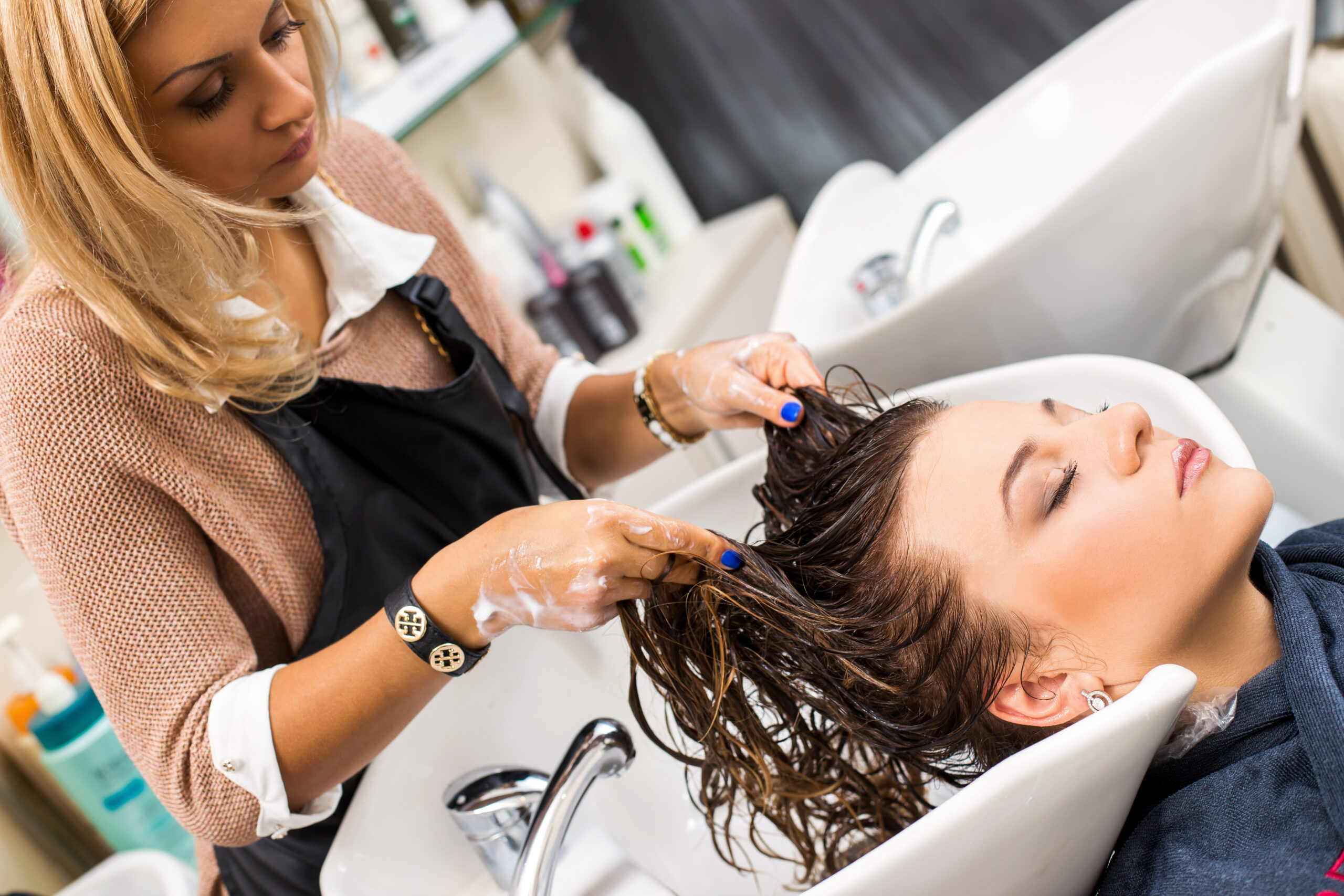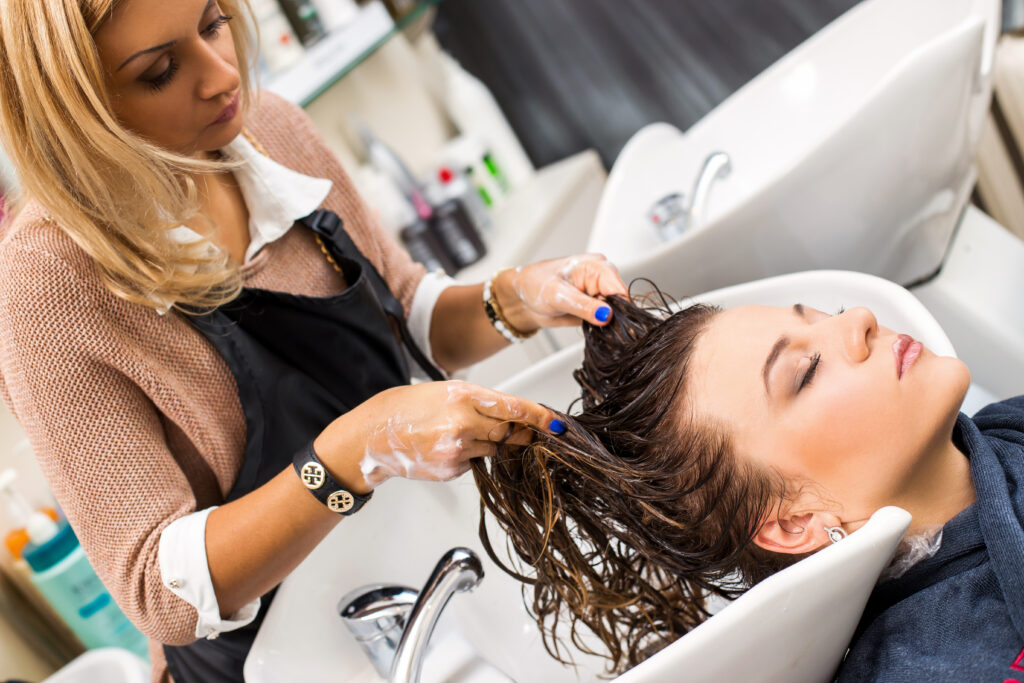
Regarding natural hair care, one size certainly does not fit all. Just as our skin types vary, so do our hair types. This is why you find out that sometimes, even if you use a product with so many positive reviews, it may not ‘work’ for you. The fact that a product is good for one person’s hair does not make it perfect for yours.
Understanding your unique hair type and porosity can be the key to unlocking the secret to healthy, luscious hair. In this article, we’ll delve into the importance of deep conditioning and the intricacies of hair typing and provide you with the ultimate roadmap to finding the perfect deep conditioner tailored to your specific hair type. Even if you know next to nothing about hair science, this guide is simple enough for you to fully grasp adequate knowledge.
Let’s delve right in.
The Importance of Deep Conditioning
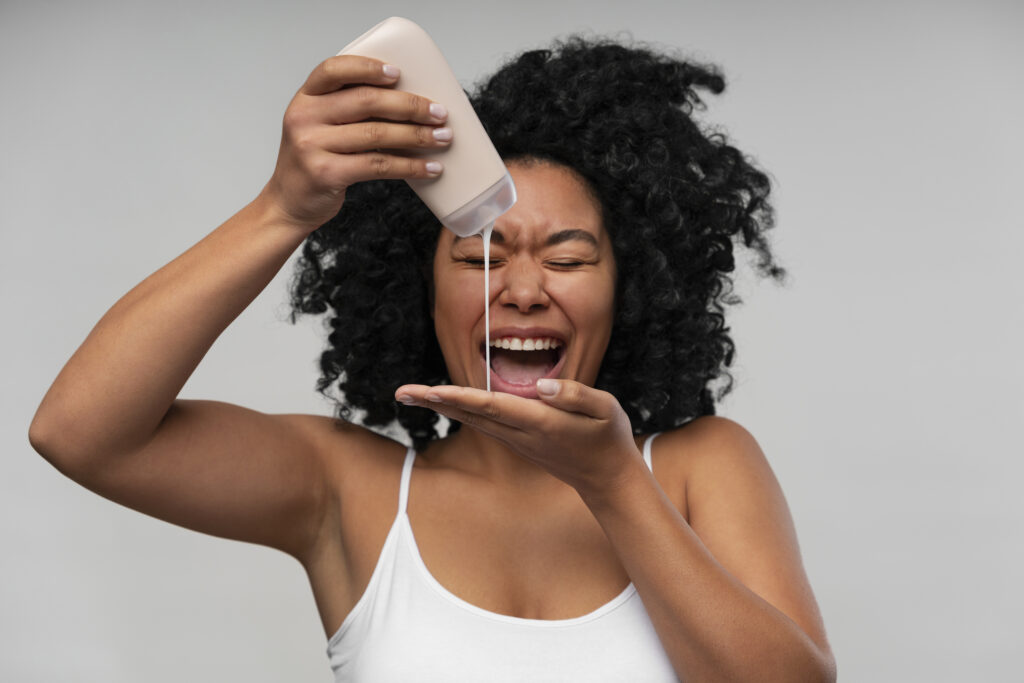
There’s something I always say to naturalists; “If you want to skip anything on your hair routine, don’t skip deep conditioning”. If you do not know what a deep conditioner is, let’s quickly discuss it. A deep conditioner is a hair care product designed to provide intense moisture, nourishment, and repair to the hair. When a deep conditioner is applied, it is meant to be left on the hair for a longer period, often with the use of heat, to penetrate deeply into the hair shaft and improve its condition, strength, and appearance. Deep conditioning is a vital step in any hair care routine, regardless of your hair type. Let’s find out some of the benefits of deep conditioning.
Intense moisturizing and hydration
Deep conditioners are specially formulated to give your hair the extra moisture boost needed to thrive. And considering the importance of moisture to your hair, I don’t think you would need any persuasion to get yourself a deep conditioner. Most deep conditioners contain potent ingredients such as proteins, vitamins, and oils that penetrate the hair shaft, providing long-lasting hydration and protection.
Repair
Deep conditioners are specially formulated to repair and strengthen hair. And so, whether your hair is damaged by excessive heat or chemicals, it can be helped by deep conditioning.
Improved Elasticity
Elasticity is one sign of healthy hair. Incorporating deep conditioning into your hair care routine improves elasticity, thereby reducing breakage and split ends.
Smoothness and shine
Deep conditioning helps to smoothen the hair cuticle (outer part of the hair), resulting in shinier and more beautiful hair.
With all these amazing benefits of deep conditioning, you would be doing your hair a great disservice if you ignore deep conditioning.
Types of Deep Conditioners
Like any other hair product, we have a lot of deep conditioners scattered around cosmetics and makeup stores worldwide. Having adequate knowledge about them will enable you to know the specific one tailored to your hair needs. Some of them are listed below:
Moisturizing Deep Conditioners
I guess moisture always happens to be the first thing on our list. A moisturizing deep conditioner is designed to hydrate dry and thirsty hair. It contains ingredients like glycerin, natural oils (such as coconut oil, olive oil, or argan oil), and humectants to attract and retain moisture. It can be suitable for all hair types, especially type 4 which is very prone to dryness.
Below are top-rated moisturizing deep conditioners recommended for you:
- SheaMoisture Raw Shea Butter Deep Treatment Mask
- Aussie 3 Minute Miracle Moist Deep Conditioner
- Moroccanoil Intense Hydrating Mask
Protein Deep Conditioners
These are formulated to strengthen and repair damaged hair by replenishing protein lost through chemical treatments or heat styling. To know a protein Deep conditioner, you can check the ingredients section for ingredients such as hydrolyzed proteins, amino acids, and keratin. They are beneficial for hair that is weak, brittle, or prone to breakage, but should be used sparingly as excessive protein can lead to stiffness or brittleness.
Below are top-rated protein deep conditioners recommended for you:
- Olaplex Hair Perfector No. 3 Repairing Treatment
- ApHogee Intensive Two Minute Keratin Reconstructor
- Giovanni Nutrafix Hair Reconstructor
Reconstructive Deep Conditioners
These deep conditioners combine moisturizing and protein-rich ingredients to repair severely damaged hair. They are formulated with a higher concentration of proteins and intensive moisturizers to rebuild the hair’s structure and improve elasticity. Reconstructive deep conditioners are ideal for hair that is severely damaged from chemical processing, heat styling, or environmental factors.
Below are top-rated reconstructive deep conditioners recommended for you:
- It’s a 10 Haircare Miracle Deep Conditioner Plus Keratin
- L’Oréal Paris Elvive Total Repair 5 Damage-Erasing Balm
- ORS Olive Oil Replenishing Conditioner
Clarifying Deep Conditioners
These are designed to remove product buildup, excess oils, and impurities from the hair and scalp. Ingredients like clarifying agents (such as apple cider vinegar or tea tree oil) and detoxifying clays are commonly found in these deep conditioners. They are suitable for all hair types, especially for those with oily or product-laden hair.
Below are top-rated clarifying deep conditioners recommended for you:
- Neutrogena Anti-Residue Clarifying Shampoo
- ACURE Curiously Clarifying Lemongrass Conditioner
- Maple Holistics Degrease Moisture Control Conditioner
Color-Protecting Deep Conditioners

These are formulated to help preserve hair color and prevent fading. They contain ingredients like UV filters, antioxidants, and color-enhancing agents to shield the hair from environmental damage and maintain vibrancy. Color-protecting deep conditioners are ideal for those with color-treated hair or those who spend a lot of time in the sun.
When choosing a deep conditioner, it’s essential to consider your hair type, condition, and specific needs. Experimenting with different types and formulations can help you find the best deep conditioner for your hair. Additionally, incorporating deep conditioning treatments into your regular hair care routine can help keep your hair healthy, hydrated, and looking its best.
Below are top-rated color protecting deep conditioners recommended for you:
- Joico Color Balance Purple Conditioner
- Redken Color Extend Magnetics Mega Mask
- Biolage ColorLast Deep Treatment Pack
Understanding Hair Types
Hair is categorized based on its texture and curl pattern into hair types. You can read more detailed information about hair types in our previous post on hair types. But for the sake of this topic, let’s briefly discuss what we should basically know. We have 4 categories of hair types:
Type 1 (straight hair)
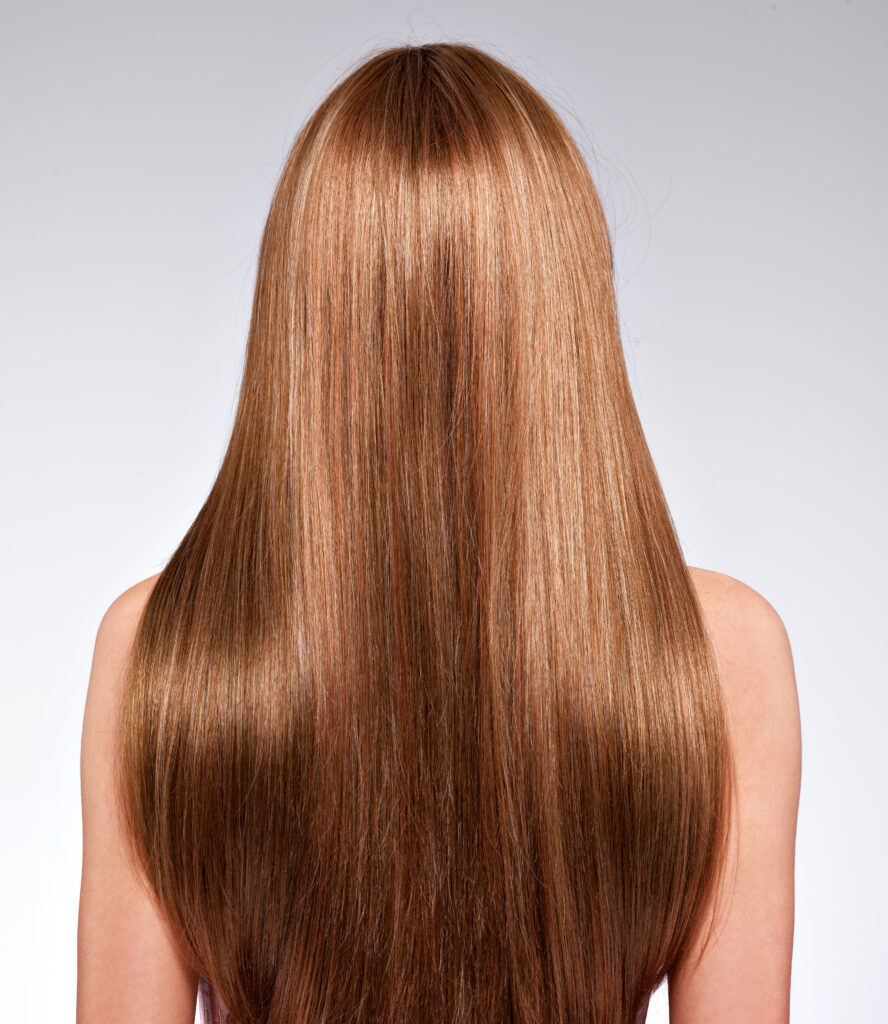
People with this hair type have straight hair. It has no curls, so it is not susceptible to tangles. Moisturizing deep conditioners can help add hydration and shine to straight hair without weighing it down. People with this hair type can also consider using a protein-deep conditioner to provide added strength to the hair shaft.
Type 2 (wavy hair)

This is a wavy hair type. It is subdivided into type 2A, 2B, and 2C. Each subdivision represents the hair type with more defined and stronger shaped waves, close to curls. Moisturizing deep conditioners can be used for type 2 hair to help define the waves and reduce frizz. Also, Color-protecting deep conditioners can help preserve and prolong the vibrancy of any dyed sections.
Type 3 (curly hair)
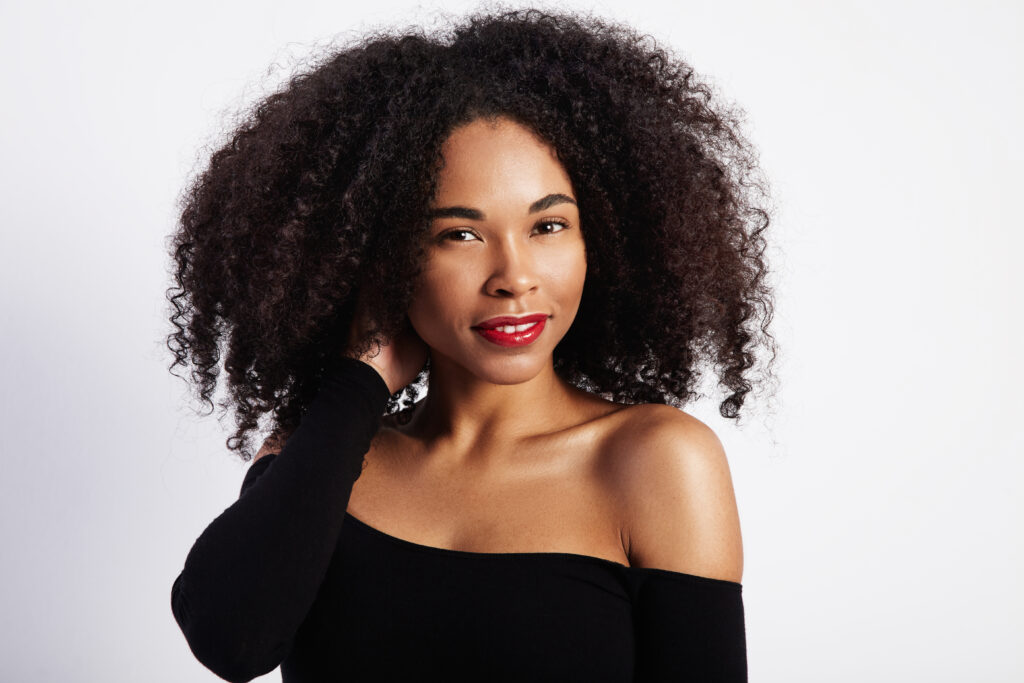
This is also called the curly hair type. People with this hair type have hair with defined curls. It is also divided into type 3A, 3B, and 3C. Where 3A had loose curls, 3B has tighter curls, and 3C has the tightest of curls. Moisturizing as well as protein-based deep conditioners can be used for this hair type.
Type 4 (coily hair)
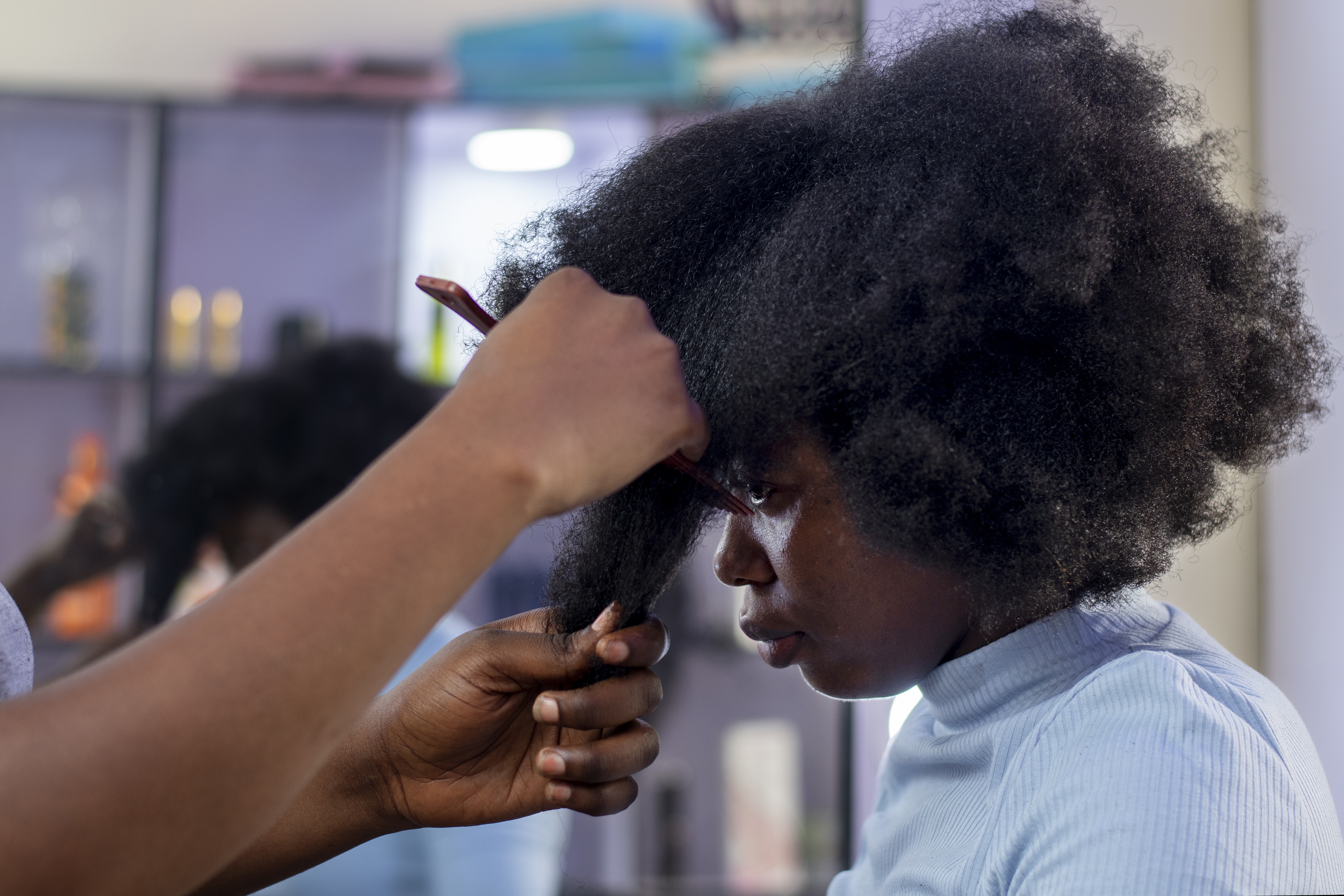
This hair type, also called the kinky/coily hair type, is very common among Africans. It has very tight coils that wrap around themselves, causing shrinkage, tangles, knots, and breakage. It is the most fragile among all other hair types and should be handled with absolute care. This hair type is also divided into type 4A, 4B, and 4C, depending on the tightness of the coils.
Moisturizing deep conditioners are crucial for type 4 hair to provide intense hydration and manageability, as this hair type tends to be drier. Also, strengthening deep conditioners with protein-rich ingredients can help strengthen the hair shaft and prevent breakage, common in coily/kinky hair. Type 4 hair is also prone to product build-up and so a clarifying Deep conditioner can also be used here.
No matter your hair type, you should use a deep conditioner. Knowing your exact hair type can help you choose the right deep conditioner without thinking too much. Additionally, knowing your hair’s porosity, which refers to its ability to absorb and retain moisture, is crucial for selecting the right deep conditioner.
Other Factors to Consider Before Choosing a Deep Conditioner
Consider Your Hair Porosity
This is a crucial aspect of your hair that helps determine the kind of products you should use. Find out your hair’s porosity by conducting a simple porosity test. If you have high porosity hair, you can use protein-based deep conditioners as well as colour-protecting deep conditioners. And if you have low porosity hair, you should use a moisturizing deep conditioner.
Read the Ingredients
Pay close attention to the ingredients list on deep conditioner labels. For dry and brittle hair, look for hydrating ingredients such as coconut oil, shea butter, glycerin, and aloe vera for added moisture. And if you have weak and damaged hair, check for protein-rich ingredients like keratin and hydrolyzed silk which are beneficial for strengthening and repairing damaged hair.
Texture and Thickness
Consider the texture and thickness of your hair when selecting a deep conditioner. Those with fine or thin hair may prefer lightweight formulas that won’t weigh down their strands, while those with thick or coarse hair may benefit from richer, more nourishing formulations.
Specific Concerns
Address any specific concerns, such as dryness, frizz, or color-treated hair. Look for deep conditioners formulated to target these issues, such as moisturizing masks for dry hair or color-safe treatments for dyed hair. This is why you need to know your hair to make the best choice.
In conclusion, understanding your hair type and porosity is essential for selecting the perfect deep conditioner to nourish, strengthen, and revitalize your locks. Remember, consistency is key, so be sure to do the right thing (deep conditioning) and do it consistently, too. Till next time, here’s to happy, healthy hair days ahead!

